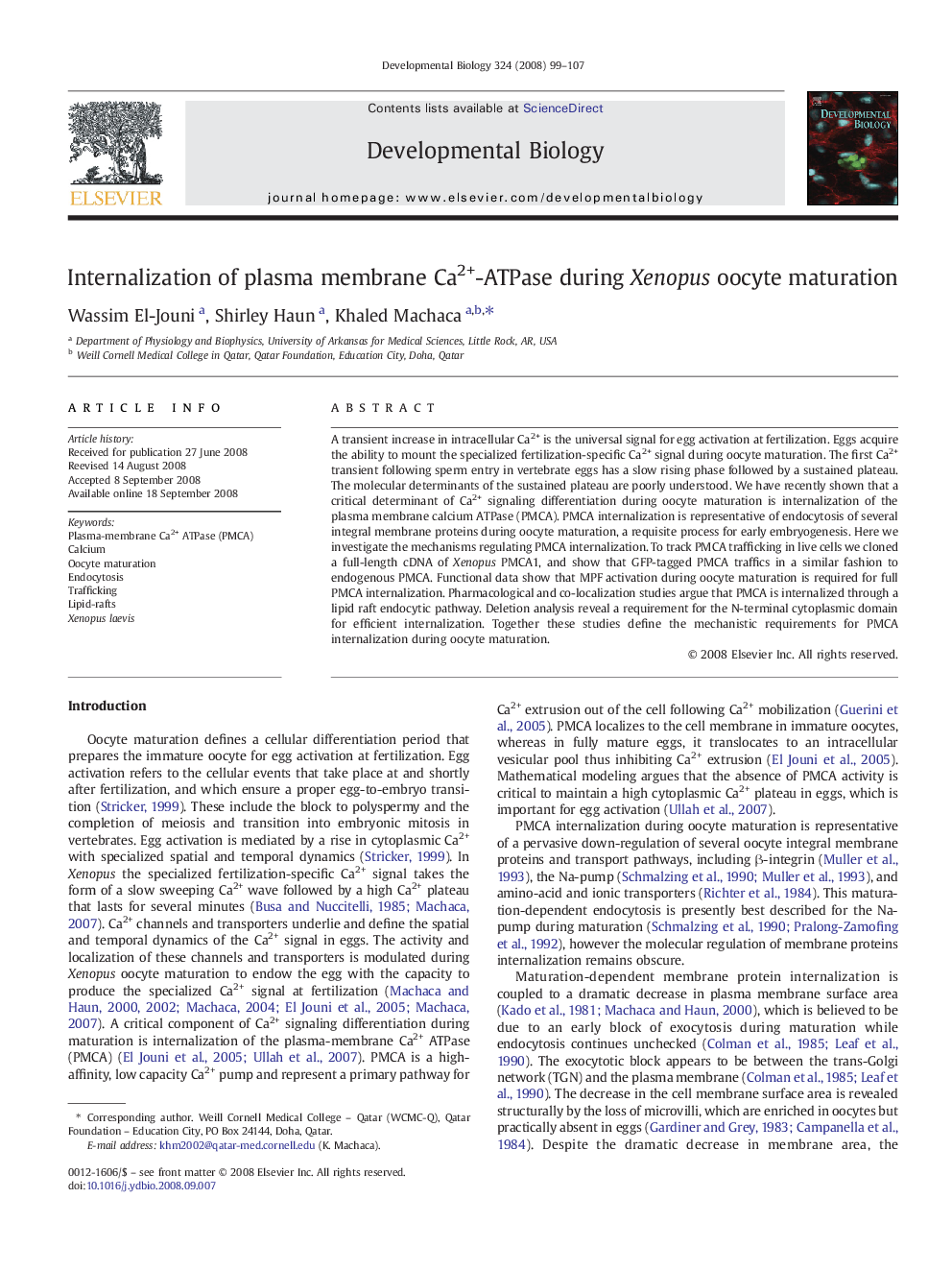| Article ID | Journal | Published Year | Pages | File Type |
|---|---|---|---|---|
| 2174312 | Developmental Biology | 2008 | 9 Pages |
A transient increase in intracellular Ca2+ is the universal signal for egg activation at fertilization. Eggs acquire the ability to mount the specialized fertilization-specific Ca2+ signal during oocyte maturation. The first Ca2+ transient following sperm entry in vertebrate eggs has a slow rising phase followed by a sustained plateau. The molecular determinants of the sustained plateau are poorly understood. We have recently shown that a critical determinant of Ca2+ signaling differentiation during oocyte maturation is internalization of the plasma membrane calcium ATPase (PMCA). PMCA internalization is representative of endocytosis of several integral membrane proteins during oocyte maturation, a requisite process for early embryogenesis. Here we investigate the mechanisms regulating PMCA internalization. To track PMCA trafficking in live cells we cloned a full-length cDNA of Xenopus PMCA1, and show that GFP-tagged PMCA traffics in a similar fashion to endogenous PMCA. Functional data show that MPF activation during oocyte maturation is required for full PMCA internalization. Pharmacological and co-localization studies argue that PMCA is internalized through a lipid raft endocytic pathway. Deletion analysis reveal a requirement for the N-terminal cytoplasmic domain for efficient internalization. Together these studies define the mechanistic requirements for PMCA internalization during oocyte maturation.
